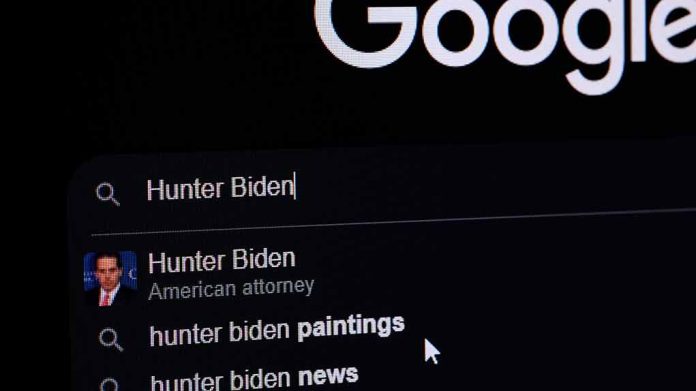
Hunter Biden’s efforts to secure U.S. government support for a Burisma deal in Italy raise serious ethical questions.
At a Glance
- Hunter Biden attempted to enlist the U.S. Ambassador to Italy in 2016 for a Burisma project.
- The request happened during Joe Biden’s vice presidency.
- No meeting occurred, but media scrutiny has intensified public debate.
- The Committee on Oversight and Accountability is investigating the Biden family’s business practices.
Hunter Biden’s Burisma Board Role Under Scrutiny
Reports have surfaced indicating Hunter Biden sought the assistance of the U.S. government to help secure a business deal in Italy for Burisma, a Ukrainian energy company, while his father, Joe Biden, was Vice President. A 2016 request for support from the U.S. Ambassador to Italy has cast a spotlight on Hunter Biden’s professional activities, raising questions about ethical boundaries and potential conflicts of interest.
Hunter Biden earned over $2 million during his tenure on Burisma’s board, which spanned nearly five years. Despite the financial benefits, Hunter Biden’s involvement with Burisma has been mired in controversy. According to records obtained by The New York Times following a legal battle with the State Department, Hunter Biden’s overture to Italian officials didn’t result in a meeting or U.S. government requests for support, but it has still provoked intense media scrutiny.
Hunter Biden attempted to enlist support from the U.S. Ambassador to Italy in 2016 to arrange a business meeting on behalf of Burisma for a prospective energy deal, according to his attorney. https://t.co/pYbg0lajFv https://t.co/pYbg0lajFv
— ABC7 News (@abc7newsbayarea) August 14, 2024
Unanswered Questions about Ethical Boundaries
Hunter Biden’s attorney, Abbe Lowell, described the request as a “normal and proper practice.” He emphasized that no meeting occurred and no project materialized, arguing that seeking an introduction in Italy fell within appropriate business conduct. This defense aims to quell allegations of impropriety, though it hasn’t silenced critics. Records show that a Commerce Department official in Rome expressed unease over U.S. cooperation on the matter.
“The New York Times first reported the overture,” sparking an ethical debate.
Recent allegations from prosecutors further complicate the narrative. They claim Hunter Biden accepted payments from a Romanian businessman to influence U.S. government agencies. Hunter Biden’s legal team has derided these claims as baseless and politically motivated. Nevertheless, the public’s interest in his career, particularly his business ventures during Joe Biden’s vice presidency, continues to grow.
More evidence of Hunter Biden peddling influence for Burisma and using Joe Biden’s position for personal gain has been released. Allegedly in 2016, Hunter used his position as the son of the Vice President to push the US Ambassador to Italy to help Burisma get projects approved…
— Rep. Jeff Duncan (@RepJeffDuncan) August 14, 2024
Potential Foreign Influence and Congressional Oversight
The Committee on Oversight and Accountability has launched an investigation into the Biden family’s business practices, aiming to determine potential foreign influence and national security threats. The Committee’s records show that the Bidens and their associates have received over $20 million from foreign entities. Payments from various businessmen, including around $3 million from Romanian businessman Gabriel Popoviciu and over $8 million from the CEFC Chairman and related entities, add to the complex financial web.
The Committee on Oversight and Accountability is investigating potential foreign influence.
Hunter Biden’s business transactions, such as receiving a $142,300 wire to his entity Rosemont Seneca from Kazakhstani businessman Kenes Rakishev, suggest an intricate network of international dealings. Records show that some transactions directly benefited Hunter Biden, like the transfer of wired funds to a car dealership. While Hunter Biden and his attorney insist that he did nothing wrong, the ongoing investigations and media scrutiny indicate that this controversial topic will remain in the public eye for the foreseeable future.
Sources
1. Hunter Biden sought help from US ambassador for Burisma, lawyer confirms
2. The Bidens’ Influence Peddling Timeline









